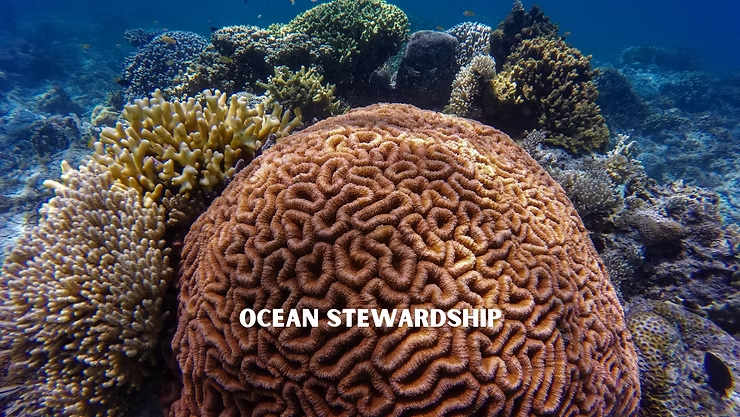Overview
What is Ocean Stewardship?
Ocean stewardship is about caring for the ocean and its resources by minimizing harm and promoting sustainability. Just like superheroes protect the world, ocean stewards protect marine ecosystems from threats such as pollution and overfishing. Simple lifestyle changes, like reducing plastic waste and supporting sustainable seafood, can make a huge difference in preserving ocean health.
Why is Ocean Stewardship Important?
Stewardship is vital for the survival of oceans facing threats like overfishing, pollution, and habitat loss. These challenges affect not only marine life but also human well-being. Through responsible actions—reducing waste, choosing sustainable seafood, and participating in clean-ups—we can collectively safeguard the ocean’s future.
How Individuals Can Contribute
- Reduce plastic waste: Use reusable bags, bottles, and utensils to cut down on single-use plastics.
- Support sustainable seafood: Choose seafood caught or farmed responsibly.
- Participate in beach clean-ups: Help remove trash and prevent it from harming marine ecosystems.
Understanding the Ocean Ecosystem
The Importance of Biodiversity
Biodiversity is the foundation of a thriving ocean ecosystem, where every species plays a unique role. The loss of one species can create a ripple effect, threatening the balance and health of the entire system. Protecting biodiversity is crucial for a resilient marine environment.
The Role of Coral Reefs
Coral reefs, often called the “cities of the sea,” provide shelter, food, and protection for countless species. They also shield coastlines from erosion and storm damage. Yet, they face threats from rising ocean temperatures, acidification, and destructive fishing practices. Immediate conservation is essential to preserve these vital ecosystems.
The Impact of Pollution on Marine Life
Pollution devastates marine life, from plastic waste harming sea creatures to toxic chemicals disrupting ecosystems. Oil spills and runoff further degrade water quality, while microplastics enter the food chain. Reducing pollution through waste management, eco-friendly choices, and stricter regulations can help protect marine biodiversity.
Taking Action for Ocean Conservation
Reducing Plastic Waste
Cutting single-use plastics is one of the simplest ways to help. Using reusable bottles, bags, and straws, along with supporting recycling initiatives, prevents plastic from reaching the ocean.
Supporting Sustainable Seafood
Choose seafood certified by organizations such as MSC or ASC, avoid overfished species, and support local fishermen using sustainable methods. These choices help maintain healthy fish populations and marine ecosystems.
Participating in Beach Clean-Ups
Beach clean-ups reduce plastic pollution while raising awareness. They also foster community spirit and encourage ongoing ocean stewardship.
Conclusion
The Power of Individual Actions
Every individual has the power to influence ocean conservation. Small lifestyle changes and direct action can create a ripple effect toward sustainability.
Continuing the Fight for Stewardship
Protecting our oceans is an ongoing mission. By consistently practicing responsible habits, supporting conservation efforts, and encouraging others, we can make lasting change.
Creating a Sustainable Future
Collective action is essential for a sustainable future. From reducing waste to promoting sustainable fishing, every effort counts. Together, we can ensure future generations inherit a thriving ocean.
Save Our Blue Ocean is dedicated to marine conservation. Our bracelets, inspired by turtles, sharks, and whales, raise awareness and fund initiatives to protect marine ecosystems. By choosing a Save Ocean bracelet, you directly support ocean preservation. Visit Save Our Blue Ocean | Ocean Gift Malaysia and join the movement to create a better future for our oceans.

